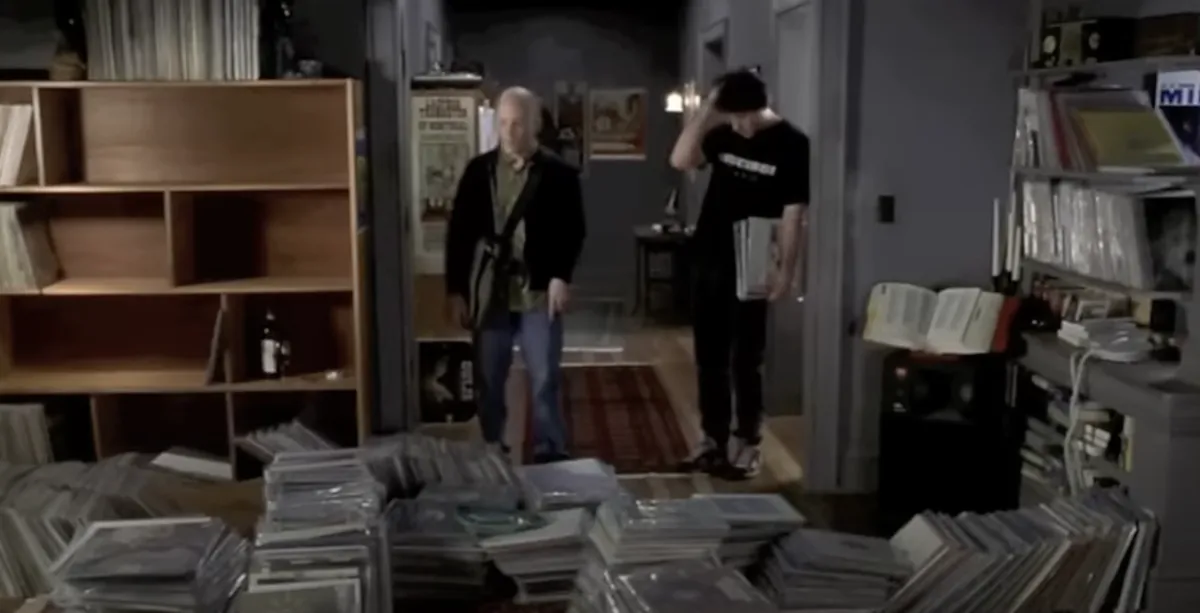Organizing like a human
If someone dumped a pile of knick-knacks in front of you and asked you to sort them, you would probably categorize them by shape, size, color, material, and so on. That makes immediate sense, and it's the way we organize information elsewhere in society. Blogs have categories and tags, for example, and each one holds posts thematically related to the label. Easy to sort, easy to search, easy to find.
But it's also boring, it suffocates any chance of curiosity, delight, or discovery, and it's not at all how our brains store information. You've probably heard the old jokes about listing all of the words you know alphabetically (it always starts with aardvark). We can't do that, even though the average adult knows tens of thousands of words. It's just not how a mind and body makes sense of things in a world where nothing is so controllable or tidy.
Let me ask you this: how do you organize your bookshelves? My bet is you don't have them in alphabetical order, and maybe not even in topical order (philosophy here, science fiction there). I think you keep like sizes and like covers together. Your old books with leather and cloth bindings touch front to back, your paperbacks are stacked in every which direction over to the side. And the few sets you've worked on sit together, and they look great even though they're incomplete.
You probably don't have any trouble finding the books you need, in part because their location is a sort of memory palace and you just know where they are, in the same way you know which kitchen drawer holds the silverware. The organizational system makes sense to you, so you never have any trouble finding what you need.
Contrast this with a library. Libraries have shelves sorted by topic, numbered with decimals and letter designations, all catalogued and stored for easy search and retrieval. This is done so that anyone can find anything using a learnable system that's fast and repeatable. Its purpose is to be as universal as possible, but in doing this it has to remove any touch of character, any connection to anything unique.
We don't have to organize our lives using systems as uninspiring as this, however, and I'm here to say we probably shouldn't. There's a scene in the '90s movie High Fidelity that illustrates this really well:

"It looks as if you're reorganizing your records. Chronological?"
"No."
"Not alphabetical."
"Nope."
"What?"
"...autobiographical."
--pause for awe and wonder, then:--
"If I want to find the song Landslide by Fleetwood Mac, I have to remember I bought it for someone in the fall of 1983 pile, but didn't give it to them for personal reasons."
This is more brilliant than you realize. Each time you search for something in a "system" like this, your mind and memories curl back onto themselves. You recall your past, you recall emotions, you recall moments and thoughts and images, and because our brains work by making associations and fortifying or weakening them based on use, this method strengthens bonds to the things that matter.
If your books and albums and notes are sorted as a machine would sort them, you forego a fragment of humanity. The things you interact with become mere objects unconnected to your life, just something to be delivered from a vending machine and discarded after use. That association will then be strengthened each time you cave to the dull tyranny of external systems, until suddenly you're disconnected from everything you interact with.
I'm figuring out ways to break these habits in my daily life so I can forage like a human, not sort and retrieve like a machine. It's more like questing, and it fuels wonderful sensations like exploration, curiosity, and discovery. So many times I've been browsing through paperbacks when a random novel catches my eye. I might have bought it because I liked the typeface, then shelved it without cracking the spine. But today I get to discover it again, and I might just sit down and have a great time.
I started collecting recipes in a notebook of water-safe paper. There's no way I could organize it like a standard cookbook, and even if I set up sections for main courses, desserts, etc., I'd spend more time flipping through blank pages than making meals. Instead, I write new recipes one after the other. The last two I scribbled on a page included a quick vanilla cake base right above egg salad with the perfect spice combination. Maybe when I'm 40 or 50 recipes in I might go back and drop them into categories, or maybe I'll keep the book as-is on the shelf, flip through it on occasion, and make whatever strikes my fancy.
You are not a library, and you are not a computer. You can organize things just for yourself and that is perfection. Drop the dry lists and the machine systems and create something that operates the way you and your brain appreciate. Autobiographical album sorting, mood-based journal bookmarks, or completely arbitrary systems that only function because you feel like sunsets are related to shoe polish. That's real, that's human, and that reintroduces curiosity and connection into your days.